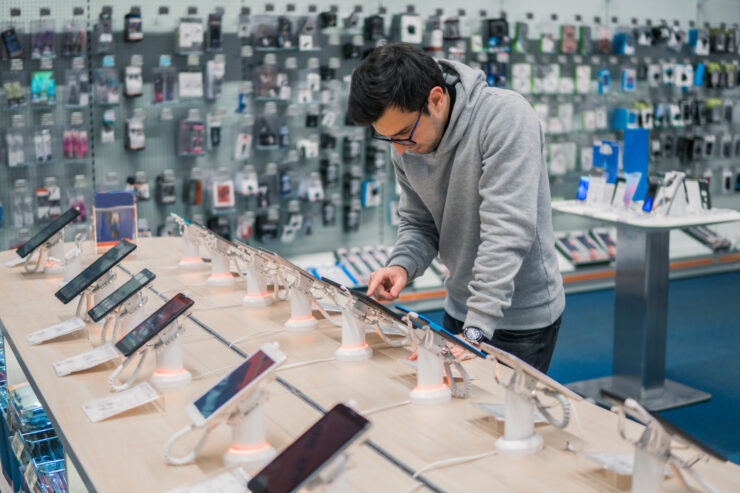FAQ
Apple Antitrust Lawsuit
iPhone maker, Apple, may be facing a number of lawsuits filed by iPhone users. The consumer lawsuits may follow a U.S. Department of Justice lawsuit filed against Apple for violation of antitrust regulations. The iPhone maker is accused of monopolizing the smartphone market by limiting access to apps and messaging services for its users.
People who purchased an iPhone directly from an Apple store or the Apple website may be eligible for compensation through an Apple iPhone lawsuit.
DOJ Antitrust Lawsuit
The U.S. Department of Justice has filed an antitrust lawsuit against Apple for monopolizing the smartphone market. The company is accused of limiting access to apps and forcing consumers to use Apple-exclusive services, some of which may be fee-based.
iPhone users may find it difficult to switch to Android-based phones and services. Developers may also face challenges in additional costs and barriers to list their apps on Apple’s App Store.
Other consumer lawsuits against Apple have also been filed for charges on Apple’s iCloud storage.
Consumer Lawsuits Being Filed
Lawsuits filed in the U.S. District Court for the Northern District of California claim that Apple’s iPhones have psychological, technical and expense barriers that essentially trap consumers in the iOS environment.
By charging additional fees for developers, some businesses may lack access to Apple’s App Store. They may be forced to duplicate app development on the Apple platform which may require adherence to more stringent, sometimes arbitrary rules and may reject certain apps from its platform.
This may force consumers to use Apple-exclusive apps and services which make it difficult for consumers to leave Apple platform due to histories, libraries, and storage. In addition to forcing consumers to use their apps, some services are not provided free and may be costly.
Apple is facing several consumer-based class action lawsuits, both for the alleged monopoly and for excessive fees on iCloud storage services.
Apple App Store Barriers
Apple’s App Store is an iPhone exclusive service which users are forced to employ. This is in contrast to Google’s Play Store which is available across all Android-based devices, no matter who manufactures the smartphone, watch, or tablet.
By providing universal access to apps and services, Google Play Store makes it possible for android users to switch from one phone to another regardless of manufacturer. Apple does not allow Google Play Store access on its iOS-based devices and has made it difficult and costly for businesses and developers to access the App Store platform.
Developers are forced to duplicate efforts for both Google and Apple app creation and businesses may be forced to pay costly fees when Apple has a similar service. App developers may also find themselves banned from the App Store for violations like advertising on the internet or other fuzzy rules including Apple’s disagreement with the business environment.
Wallet and Payment Systems First to File Lawsuit
Prior to the US DOJ lawsuit, payment system services including PayPal’s Venmo, a peer-to-peer payment system which was an Apple-Cash competitor was originally barred from listing on Apple’s platform. Though Venmo was later granted access, Apple made it difficult or impossible for the company to offer updates or new services including cryptocurrency.
The Venmo PayPal lawsuit has been dismissed but the Department of Justice has recently filed a lawsuit against Apple with more widespread allegations against the iPhone maker. A number of class-action lawsuits have followed the DOJ lawsuit against Apple.
Consumers Affected by Apple Exclusives
Consumers who purchase or use Apple products including iPhone, iPad and Apple Watch may be limited by fees on premium upgrades to services which are provided free of charge on Androids. In some cases, like music service Spotify premium, an iTunes competitor, consumers may be blocked from accessing these premium services altogether on the iPhone App Store.
Apple product users are also automatically forced to use iCloud storage and Apple messaging services which may prevent them from moving to an Android service for fear of lost documents, connections, pictures, and libraries. This may be due to both financial and psychological reasons and may force users to continue to purchase iPhones even though they are more expensive. Apple is facing several consumer lawsuits in addition to the DOJ’s antitrust lawsuit.
People who purchased an iPhone directly from an Apple store or the Apple website may be eligible for compensation.
